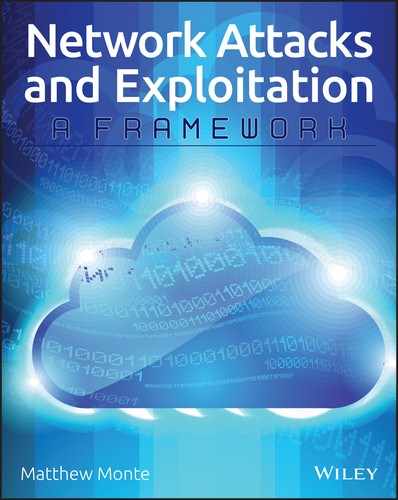Introduction
Why are you arming, brother? And have you thought of sending someone to spy on the Trojans?
—Menelaus, the Iliad
Remember, hacking is more than just a crime. It's a survival trait.
—Hackers (1995)
This is not a book about Cyberwar, Cyber 9/11, or Cybergeddon. These terms are thrown about to generate page hits or to secure funding or business. They are designed to grab attention or shock you into action, and perhaps for that there is a use, but they are not particularly helpful in framing what to actually do about computer security. If Digital Pearl Harbor, a reference to a massive devastating surprise attack, is imminent, what must you do to prevent it? Update antivirus software? Be careful with attachments? Make sure your password has at least two n3mber5? The comparison to such events does not help you understand an attack or illuminate a strategy to prevent it.
Depending on what definition you use and who you ask, Cyberwar will never happen, is about to happen, or is already happening. Yet regardless of what verb tense is used for describing the state of Cyberwar, there is no question that cyber espionage is real and ongoing. Computer security companies meticulously detail immense spying campaigns with names such as Red October, Flame, or Aurora. Meanwhile the media runs story after story about the alleged capabilities of the National Security Agency and different Chinese PLA Units. While the meaning of Cyberwar is debated, the latest incarnation of an old profession is in full swing.
The sheer number of reported intrusions makes exploiting computer networks sound easy. The attackers are unattributable and unstoppable, the victims unwitting and powerless. In reading the news, you would think that every time a company loses its credit card data, discloses sensitive internal e-mails, or loses military secrets, the compromise was inevitable.
This attitude is lazy. The reasons given are invariably the same: an outdated system was neglected, a warning sign was missed, or a careless user exercised poor judgment. If only XYZ had been done, the attack would not have succeeded. And yet as countless companies and government agencies are repeatedly penetrated, it becomes clear that explaining what tactics were used is not good enough.
To understand the failure of computer security, you must move beyond analyzing a specific event to understanding the inherent properties of computer operations. Is there an intrinsic offensive advantage? What contributes or detracts from this advantage? What strategy must an attacker employ to remain successful? How can this strategy be countered? How can you keep pace with rapid technological change?
These are not easy questions. Answering them requires a framework for reasoning about the strategies, technologies, and methods for executing or defending against computer operations. This book attempts to form such a framework to address these and other questions, inferring and identifying those aspects of the subject that are enduring.
Computer espionage is increasing in frequency, sophistication, and impact. Political, military, intellectual property, personal, and financial information is being siphoned off at an unprecedented rate. As the legal and moral doctrines for dealing with this predicament emerge from infancy, the onslaught will continue. It is therefore critical for business leaders, IT professionals, and policy makers to start addressing the issues at a strategic level, and to do this, you first must understand the principles of network attack and exploitation.
